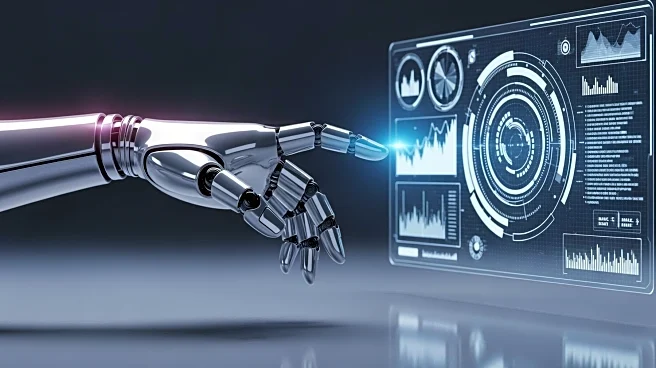What's Happening?
Howard Schultz, former CEO of Starbucks, has expressed significant concerns regarding the rapid advancement of artificial intelligence (AI) and the lack of regulatory measures to manage its growth. In
an interview with LinkedIn's editor in chief, Daniel Roth, Schultz highlighted the parallels between AI and social media, noting that regulation for social media lagged behind its development, leading to adverse effects. Schultz emphasized that AI is progressing at a pace that regulators are struggling to keep up with, and he voiced his worries about the potential negative impacts of AI if not properly regulated. Despite his concerns, Schultz supports AI adoption but stresses the importance of moral responsibility among Big Tech leaders, urging figures like Elon Musk and Bill Gates to prioritize ethical considerations in AI development.
Why It's Important?
The concerns raised by Howard Schultz underscore the critical need for timely and effective regulation in the AI sector. As AI technology continues to evolve rapidly, the potential for both positive and negative impacts on society grows. Without adequate regulatory frameworks, there is a risk that AI could lead to unintended consequences, similar to those seen with social media. Schultz's call for moral responsibility among tech leaders highlights the importance of balancing innovation with ethical considerations. This issue is particularly relevant for industries and policymakers who must navigate the complexities of AI integration while safeguarding public interests.
What's Next?
The discussion initiated by Schultz may prompt further dialogue among tech leaders and policymakers regarding the establishment of comprehensive regulatory measures for AI. As AI continues to be integrated into various sectors, including retail and service industries, stakeholders may need to collaborate to develop guidelines that ensure responsible AI usage. Additionally, Schultz's comments could influence corporate strategies, encouraging companies to prioritize ethical considerations in their AI initiatives. The ongoing conversation around AI regulation is likely to shape future policies and industry standards.
Beyond the Headlines
Schultz's remarks also bring attention to the broader ethical implications of AI technology. As AI becomes more prevalent, questions about privacy, data security, and the potential for bias in AI systems become increasingly important. The call for moral responsibility among tech leaders suggests a need for a cultural shift towards prioritizing ethical considerations in technological advancements. This could lead to long-term changes in how companies approach AI development and implementation, fostering a more responsible and sustainable tech industry.








